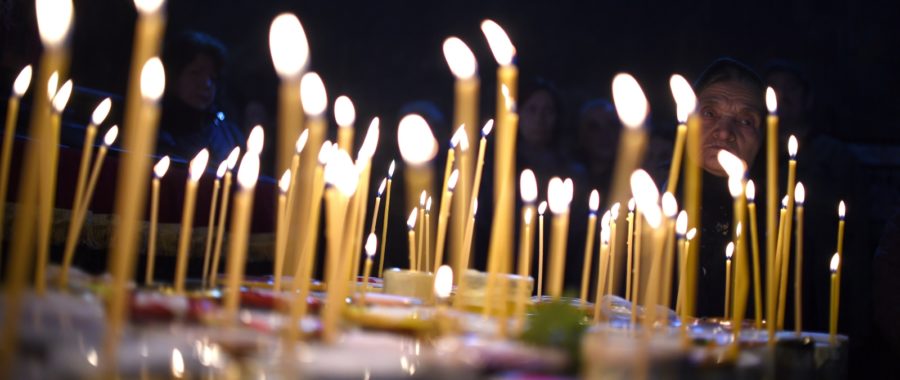
epa06507902 A Bulgarian elderly woman is seen through candles during a holy mass for the 'sanctification of honey’ at the Presentation of the Blessed Virgin church in the town of Blagoevgrad, Bulgaria, 09 February 2018. Honey and beehives are sanctified by performing a ritual for health and rich harvest. On St. Haralambos’ Day, sick or blind people go to church and pray for healing. According to traditional concepts, St. Haralambos is the lord of all illnesses, especially the plague. Doing any housework is strictly forbidden that day, because of the fear of any coming illness. Women are only allowed to bake round bread and decorate it with a cross in the middle and a large wreath at the edge for health. Honey is consecrated in the local church and then all the bread is coated with that honey. The rest of the honey is kept in the house as a remedy. According to the belief, St. Haralambos blesses the land and it gets warmer and ready to be cultivated. EPA/Borislav Troshev Dostawca: PAP/EPA.
Bułgaria: dzień miodu [GALERIA]
W Bułgarii odbył się Dzień Miodu, podczas którego prawosławni wierni święcili miód, by dawał wszystkim zdrowie. W ten dzień według tradycji nie można pracować, by nie zachorować a wszyscy prawosławni wierni uczestniczą w tym dniu w nabożeństwie.
- epa06507900 Bulgarian Orthodox faithful light candles attached to jars of honey during a holy mass for the 'sanctification of honey’ at the Presentation of the Blessed Virgin church in the town of Blagoevgrad, Bulgaria, 09 February 2018. Honey and beehives are sanctified by performing a ritual for health and rich harvest. On St. Haralambos’ Day, sick or blind people go to church and pray for healing. According to traditional concepts, St. Haralambos is the lord of all illnesses, especially the plague. Doing any housework is strictly forbidden that day, because of the fear of any coming illness. Women are only allowed to bake round bread and decorate it with a cross in the middle and a large wreath at the edge for health. Honey is consecrated in the local church and then all the bread is coated with that honey. The rest of the honey is kept in the house as a remedy. According to the belief, St. Haralambos blesses the land and it gets warmer and ready to be cultivated. EPA/Borislav Troshev Dostawca: PAP/EPA.
- epa06507901 Bulgarian Orthodox faithful light candles attached to jars of honey during a holy mass for the 'sanctification of honey’ at the Presentation of the Blessed Virgin church in the town of Blagoevgrad, Bulgaria, 09 February 2018. Honey and beehives are sanctified by performing a ritual for health and rich harvest. On St. Haralambos’ Day, sick or blind people go to church and pray for healing. According to traditional concepts, St. Haralambos is the lord of all illnesses, especially the plague. Doing any housework is strictly forbidden that day, because of the fear of any coming illness. Women are only allowed to bake round bread and decorate it with a cross in the middle and a large wreath at the edge for health. Honey is consecrated in the local church and then all the bread is coated with that honey. The rest of the honey is kept in the house as a remedy. According to the belief, St. Haralambos blesses the land and it gets warmer and ready to be cultivated. EPA/Borislav Troshev Dostawca: PAP/EPA.
- epa06507902 A Bulgarian elderly woman is seen through candles during a holy mass for the 'sanctification of honey’ at the Presentation of the Blessed Virgin church in the town of Blagoevgrad, Bulgaria, 09 February 2018. Honey and beehives are sanctified by performing a ritual for health and rich harvest. On St. Haralambos’ Day, sick or blind people go to church and pray for healing. According to traditional concepts, St. Haralambos is the lord of all illnesses, especially the plague. Doing any housework is strictly forbidden that day, because of the fear of any coming illness. Women are only allowed to bake round bread and decorate it with a cross in the middle and a large wreath at the edge for health. Honey is consecrated in the local church and then all the bread is coated with that honey. The rest of the honey is kept in the house as a remedy. According to the belief, St. Haralambos blesses the land and it gets warmer and ready to be cultivated. EPA/Borislav Troshev Dostawca: PAP/EPA.
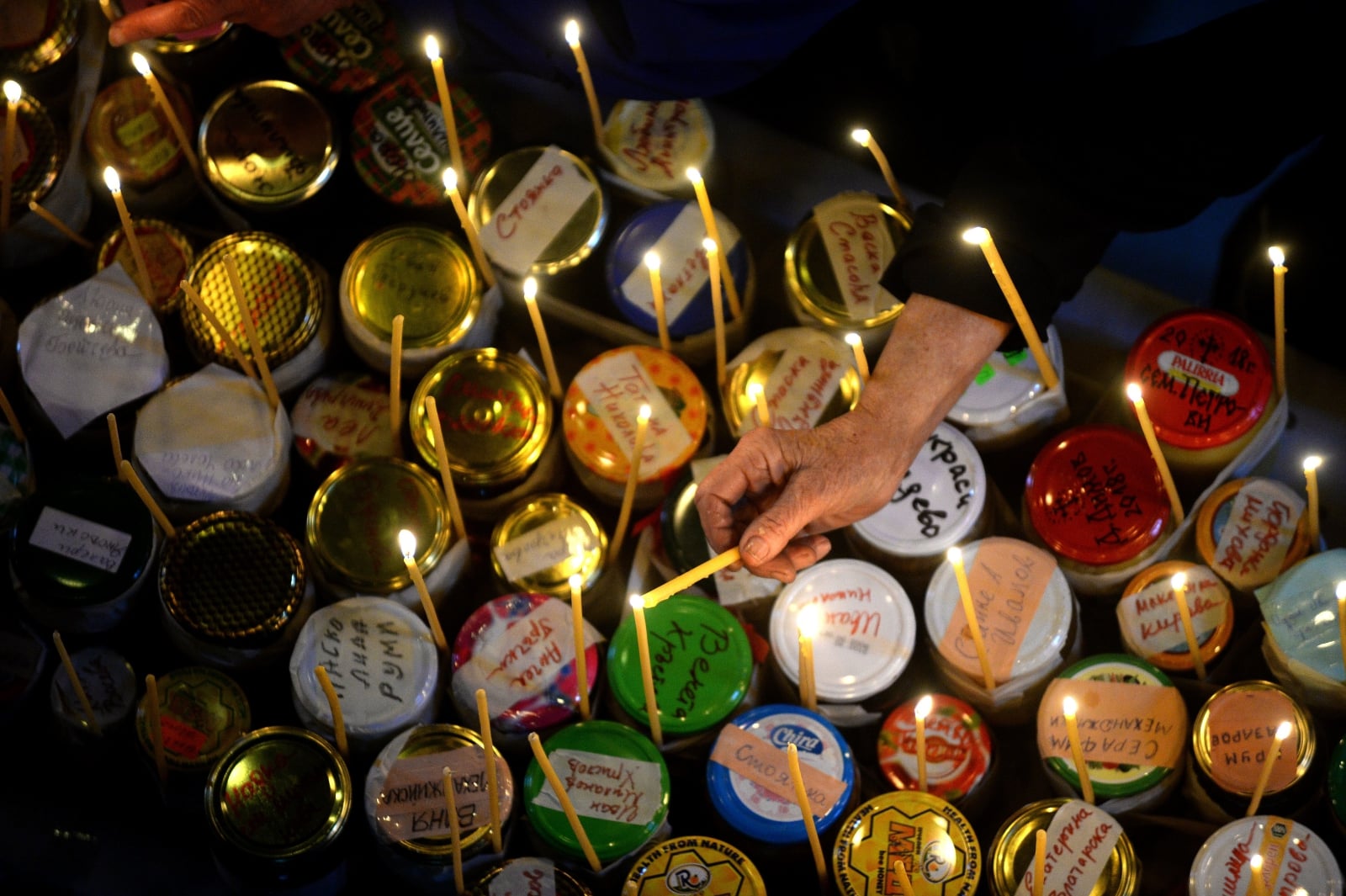









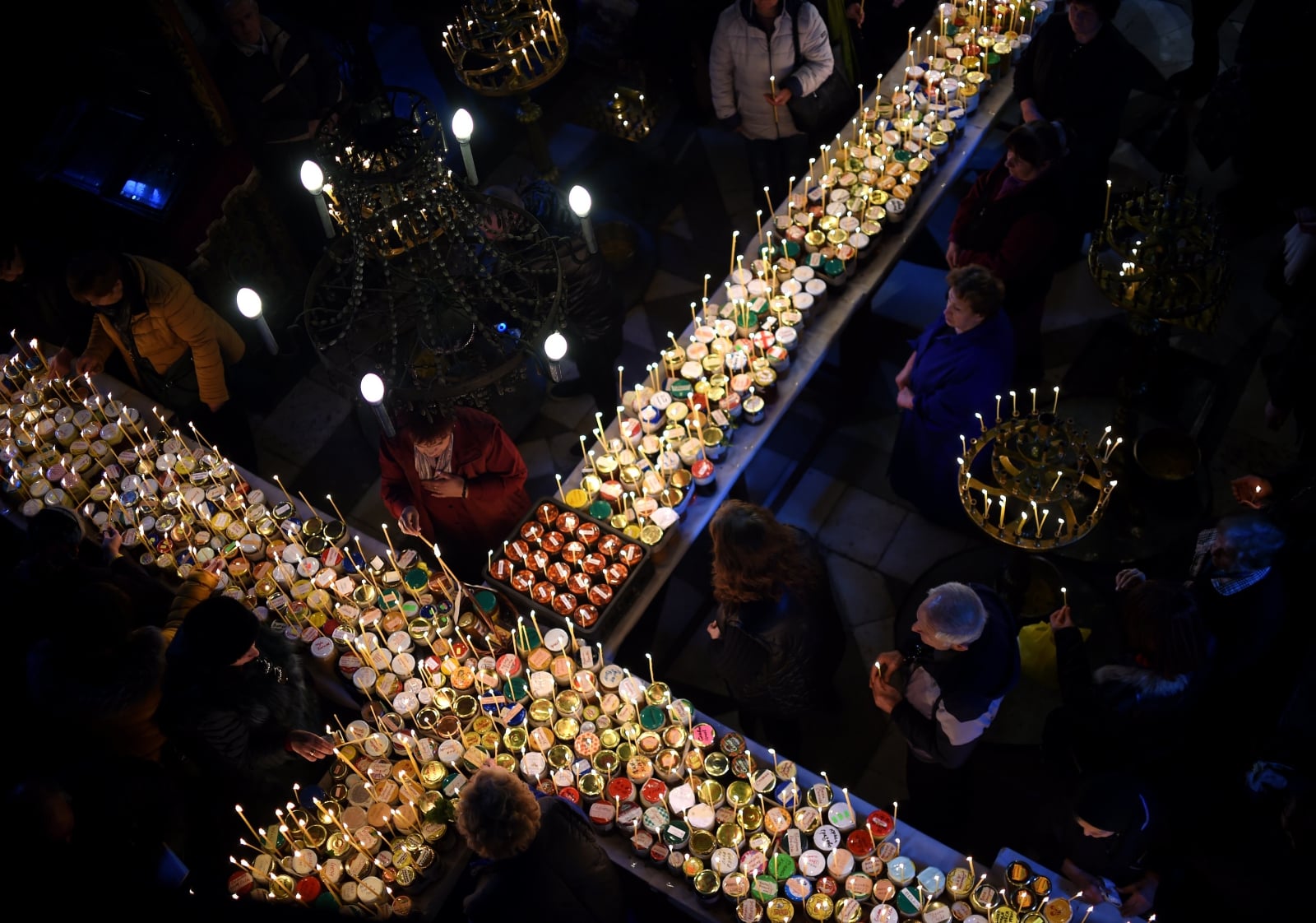
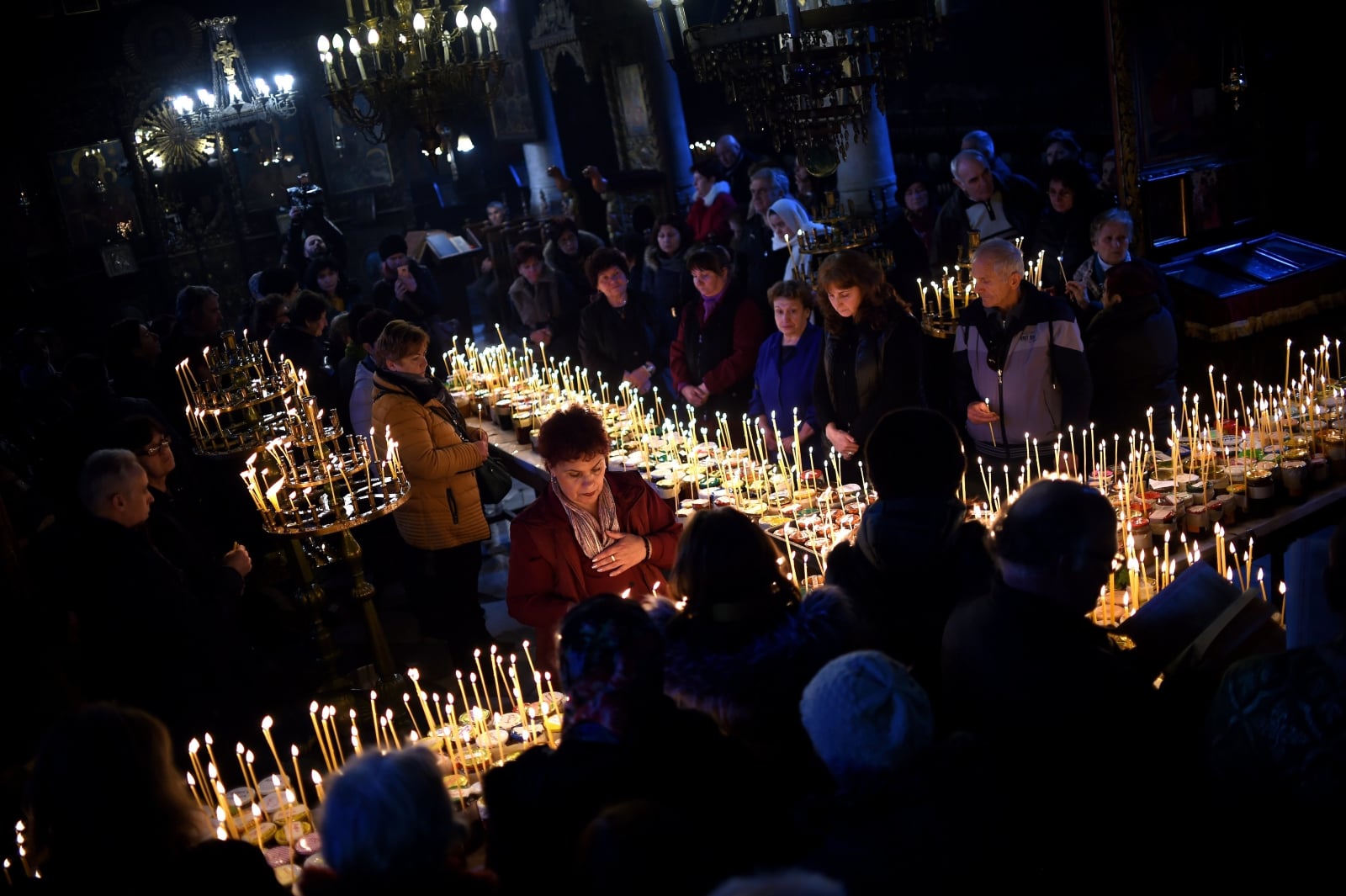
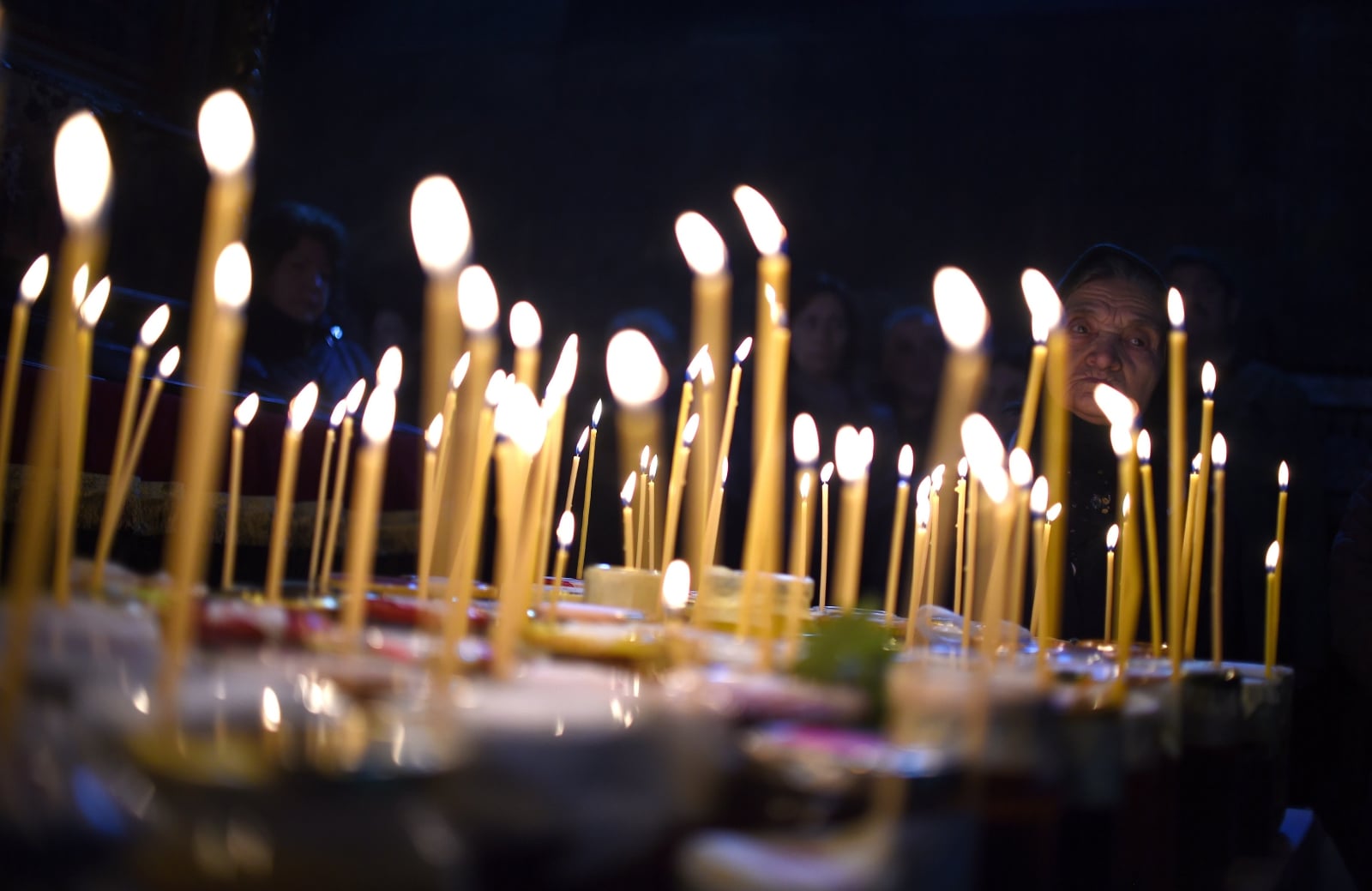















 Wiadomości
Wiadomości Wideo
Wideo Modlitwy
Modlitwy Sklep
Sklep Kalendarz liturgiczny
Kalendarz liturgiczny